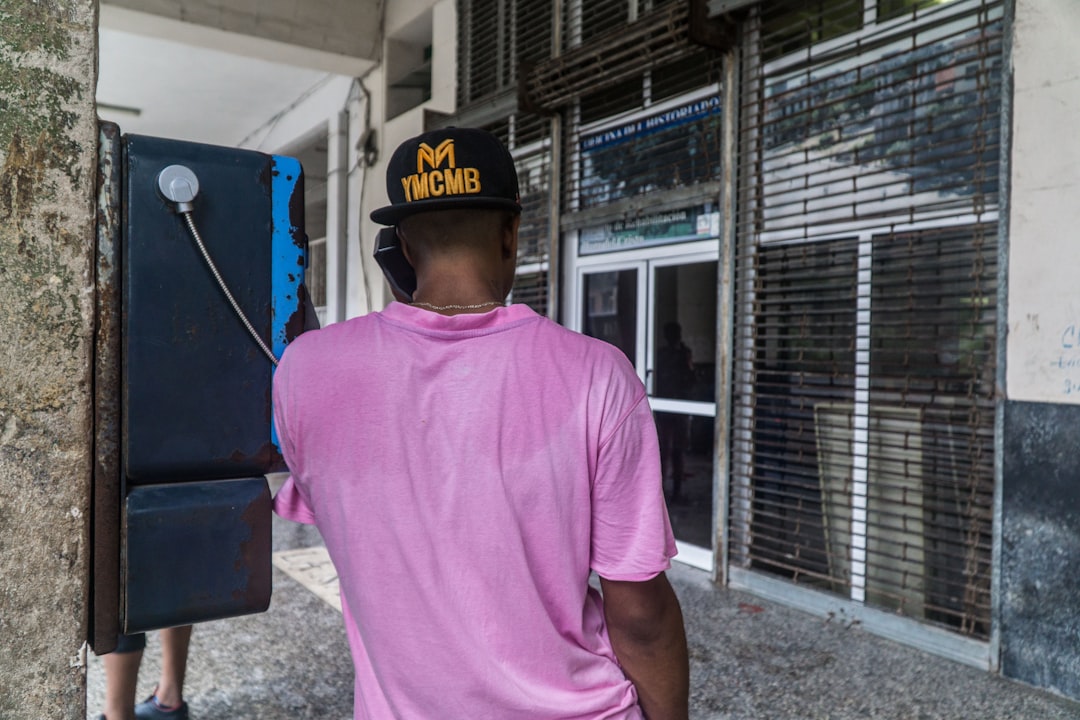Wilmington, Delaware residents face persistent telemarketing abuse, despite Do Not Call laws. Community organizations combat this by educating on consumer rights, blocking calls, registering with the National Do Not Call Registry, and advocating for stricter local regulations, including support for a Do not call law firm Delaware. They offer emotional support and organize awareness campaigns to minimize unwanted sales pitches, fostering community against abusive practices.
In Wilmington, telemarketing abuse has become an increasingly frustrating issue, impacting residents’ daily lives. This article explores the vital role community organizations play in combating this nuisance. We delve into understanding the scope of the problem, highlighting how community efforts provide a collective defense against relentless sales calls. Furthermore, we present effective strategies to curb unwanted telemarketing, guide Delaware residents on their legal rights, and offer insights on building a powerful advocacy network, all while emphasizing alternatives to relying on a Do Not Call law firm in Delaware.
Understanding Telemarketing Abuse in Wilmington

In Wilmington, telemarketing abuse has become a significant concern for residents, often leading to unwanted and harassing calls from various sources. This issue is particularly frustrating as it invades personal time and space, causing distress and disrupting daily routines. The problem extends beyond simple annoyance; excessive calls can be a form of harassment, especially when they persist despite requests to stop. Many individuals in Delaware have found themselves on the receiving end of relentless sales pitches from telemarketers, often breaking the Do Not Call laws.
Community organizations play a pivotal role in combating this abuse by educating residents and implementing strategies to reduce unwanted calls. They advocate for stricter regulations and provide support to those affected. By organizing awareness campaigns, these groups highlight the impact of telemarketing harassment and encourage people to take action. Additionally, they offer guidance on blocking calls, registering with Do Not Call lists, and understanding consumer rights, empowering residents to protect themselves from such abuse in Wilmington.
Community Organizations: A Collective Defense

Community organizations play a pivotal role in combating telemarketing abuse in Wilmington, acting as a collective defense mechanism for residents. These groups, often composed of local citizens and business owners, work together to educate the public about unwanted telemarketing calls and texts. They organize awareness campaigns, providing practical tips on how to block or report such calls, empowering individuals to take control of their privacy.
By banding together, community organizations can lobby for stricter regulations and advocate for policy changes at both local and state levels. Their collective voice can influence legislation, ensuring that laws are enacted to protect residents from intrusive telemarketing practices. Moreover, these groups offer support networks for those affected by excessive or aggressive sales calls, fostering a sense of solidarity against what can be a frustrating and invasive issue.
Strategies to Stop Unwanted Calls

Community organizations in Wilmington play a pivotal role in combating telemarketing abuse by educating residents on effective strategies to stop unwanted calls. One powerful approach is to register for the National Do Not Call Registry, which limits phone solicitations from companies and telemarketers. In Delaware, specifically, individuals can add their numbers to the state’s Do Not Call list, significantly reducing the volume of unsolicited calls.
Additionally, community groups advocate for robust enforcement of existing laws against abusive telemarketing practices. This includes reporting suspicious or harassing calls, encouraging neighbors to do the same, and supporting initiatives that promote transparency and accountability among telemarketers. By combining awareness campaigns and legal measures, these organizations aim to create an environment where telemarketing abuse is minimized, ensuring a quieter and more peaceful communication experience for Wilmington residents.
Legal Rights and Resources for Delaware Residents

In Wilmington, Delaware, residents have legal rights and resources available to combat telemarketing abuse. The Telephone Consumer Protection Act (TCPA) grants individuals the right to refuse unsolicited calls, including those from telemarketers. Delaware residents can register their phone numbers on the National Do Not Call Registry, which automatically blocks calls from most telemarketers for 5 years. Additionally, many local community organizations offer guidance and support in dealing with persistent or harassing telemarketing calls.
For more aggressive cases of telemarketing abuse, Delaware residents can seek legal action. They have the right to file complaints against violators with the Federal Trade Commission (FTC) and may also consult with a Do not call law firm Delaware to explore their options for seeking damages or injunctive relief. These measures ensure that community organizations in Wilmington can effectively stand up against telemarketing abuse, protecting residents’ privacy and peace of mind.
Building a Network for Effective Advocacy

Community organizations play a pivotal role in combating telemarketing abuse in Wilmington, Delaware. By fostering connections and sharing resources, they create a powerful network for effective advocacy. This collaboration ensures that residents have a united front against unwanted calls, providing a comprehensive approach to protect consumer rights.
Through regular meetings and targeted initiatives, these groups can develop strategies to educate the public about their rights and options when dealing with telemarketers. They organize workshops, distribute informative materials, and leverage social media to spread awareness, empowering individuals to take proactive measures against abusive telemarketing practices, including those from law firms in Delaware.






